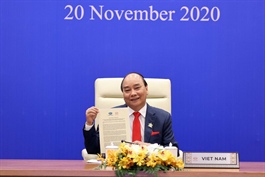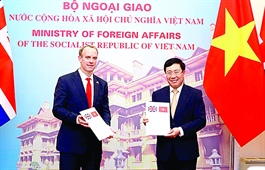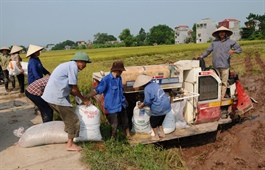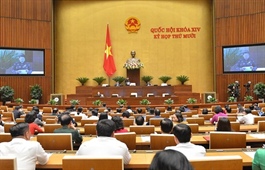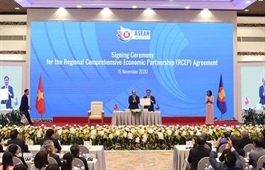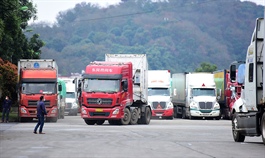Pooling data for joint ASEAN growth
Pooling data for joint ASEAN growth
An online database portal will accelerate the process of implementing sustainability targets of ASEAN countries, as well as contribute to improving their performance, according to the bloc’s leaders.

Pooling data for joint ASEAN growth-illustration photo/ shutterstock
|
The General Statistics Office (GSO) in collaboration with the Statistics Division (ASEANStats) under the Economic Community Department of the ASEAN Secretariat has unveiled a baseline report and online portal to track ASEAN member states’ progress towards the United Nation’s Sustainable Development Goals (SDGs).
GSO director general Nguyen Thi Huong emphasised that while being chair of ASEAN for 2020, Vietnam proposed an initiative on establishing the statistical information system for the sustainable development of ASEAN and received consensus and active participation to implement the initiative for member states.
“The initiative aims to help establish a sustainable, uniform, and consistent statistical information system; ensure to adequately provide information on monitoring and evaluation of ASEAN sustainable development; promote partnerships; and improve capacity to collect and compile SDG indicators as well as strengthen the role of ASEANStats,” said Huong.
Member states’ data in relation to global SDG data has been conducted since last May. The online database covers 134 indicators – of this, a static table highlights the data for 2016 and the latest year available, and users can create their own tables from the database.
Hsiu Chin Tang, chair of the ASEAN Working Group on SDG Indicators, said that the 2020 baseline report covers 67 indicators and establishes baseline information of SDGs being tracked and measured in ASEAN for 2016-2018, as well as aids future monitoring of progress in achieving the 2030 Agenda and to support relevant policymaking at both national and regional levels.
According to the report, the prevalence of stunting and wasting in young children varied across member states with an average of 27 per cent of children under five years of age experiencing stunting, and 8.6 per cent children experiencing wasting in ASEAN in 2016.
Maternal mortality, neonatal mortality, and under-five mortality rates were relatively high in Indonesia, Laos, Myanmar, and Cambodia while quite low in Brunei, Malaysia, Singapore, and Thailand.
In ASEAN, access to primary and secondary education for children is equitable. The region reached near gender parity in gross enrolment ratio in primary and secondary education in 2018, with minimal or no inequality in the majority of member states. Proportionately, more females than males enrolled in tertiary education.
The report also emphasised the high unemployment rates in some countries. The region recorded an average unemployment rate of 3.7 per cent among persons aged over 15 with similar rates for males (4 per cent) and females (3.7 per cent) in 2018.
“The SDG indicators report plays an important role in making policies for sustainable development, green growth of member countries, and being an important tool to ensure transparency of statistical indicators,” said Tang of the Working Group.
He added that countries have established institutional mechanisms to coordinate plans, activities, and responses for the production of SDG indicators to implement and monitor the 2030 agenda. Of this, national statistical offices and national statistical systems play a key role in reporting on national progress and serving as custodian agencies, supported by various institutional mechanisms and measures.
“However, there are significant challenges in sustaining monitoring systems given the vast data requirements of SDGs. There is a need for increased statistical capacities, including financing and human resources, in order to enhance engagement of multi-stakeholders for robust national monitoring systems,” he added.
The ASEAN Community’s vision to 2025 has complemented the UN Agenda 2030 for Sustainable Development with efforts to improve the living standards of people in the ASEAN Community. This is reflected in the Blueprint 2025 of the ASEAN Economic Community and Socio-Cultural Community, which is committed to achieving sustainable socioeconomic development.
To ensure monitoring and evaluation of the targets over the next decade, Huong from GSO proposed to maintain and promote the initiative of the indicators’ working group; regular updates from member countries on SDG indicators; and enlist the active support of international organisations, development partners, non-governmental organisations, and the business community and society SDG monitoring and evaluation.
|
To successfully fulfil Vietnam’s mandate as the ASEAN chair on statistics for 2020, the General Statistics Office (GSO) has actively developed preparation plans since last year. Groups were assigned specific tasks under the areas they are responsible for, including the ASEAN Community Statistical System (ACSS) Sub-Committee on Planning and Coordination, and working groups on Sustainable Development Goal indicators; data sharing, analysis, dissemination, and communication of ASEAN statistics; statistics on international trade in services; international merchandise trade statistics; international investment statistics, and on the system of national accounts. In the ASEAN Chairmanship Year 2020, the GSO takes responsibility for organising five meetings and sessions in Vietnam. These are the 10th session of the ACSS Committee and a high-level forum on ASEAN statistics; the 20th session of the ACSS Sub-Committee on Planning and Coordination; the 18th meeting of the Working Group on Data Sharing, Analysis, Dissemination and Communication of Statistics; the third meeting of the Working Group on SDG Indicators; and the seventh meeting of the Working Group on Statistics on International Trade in Services. |



